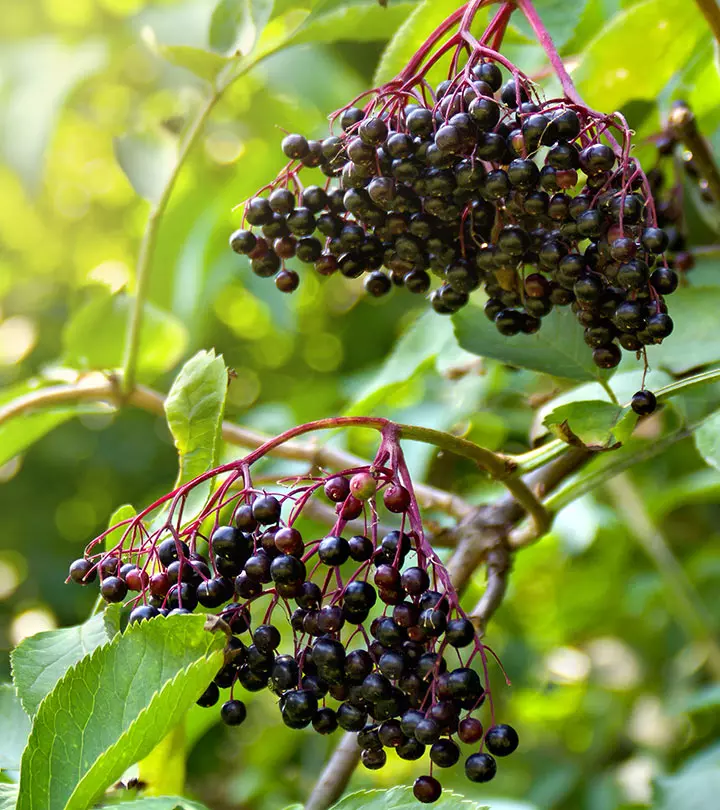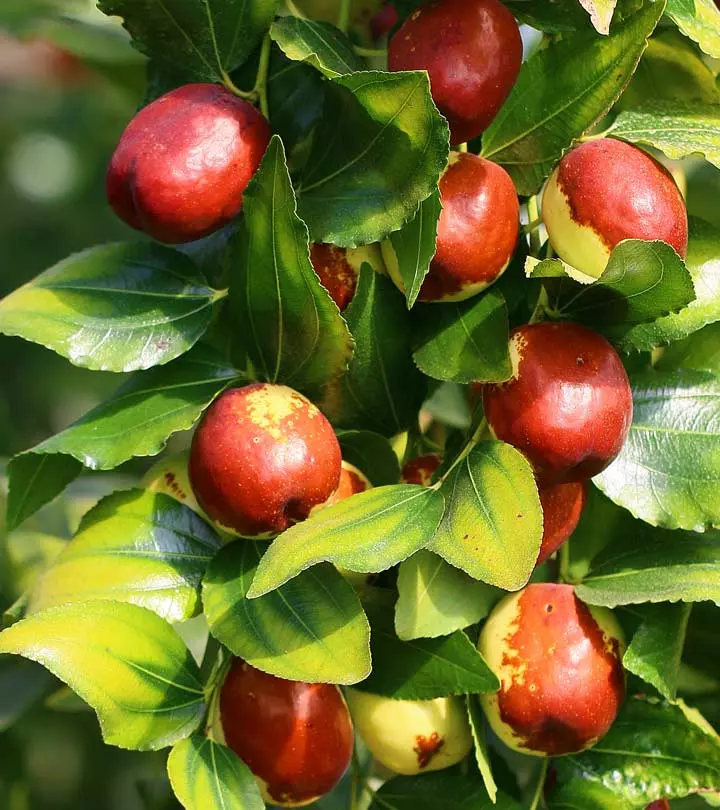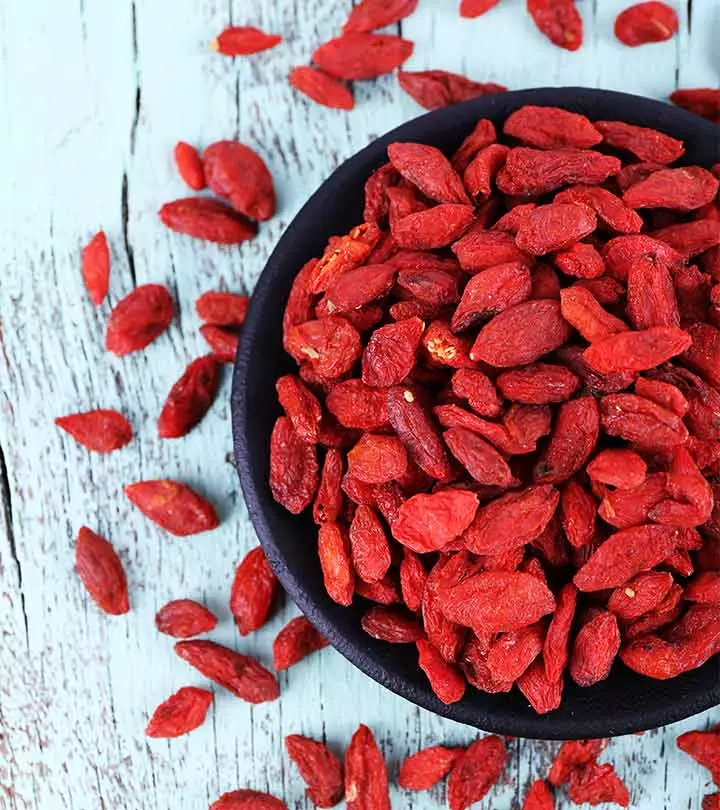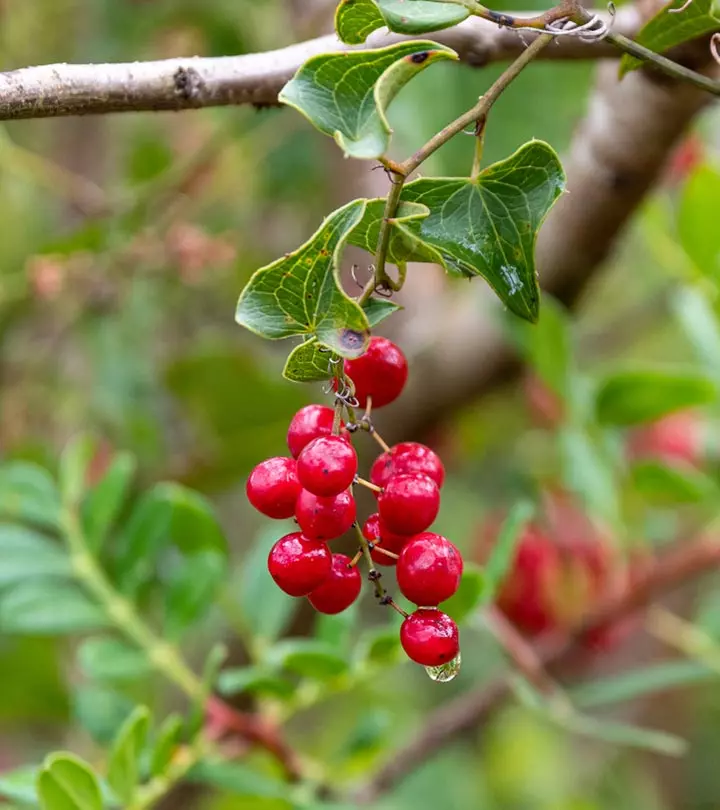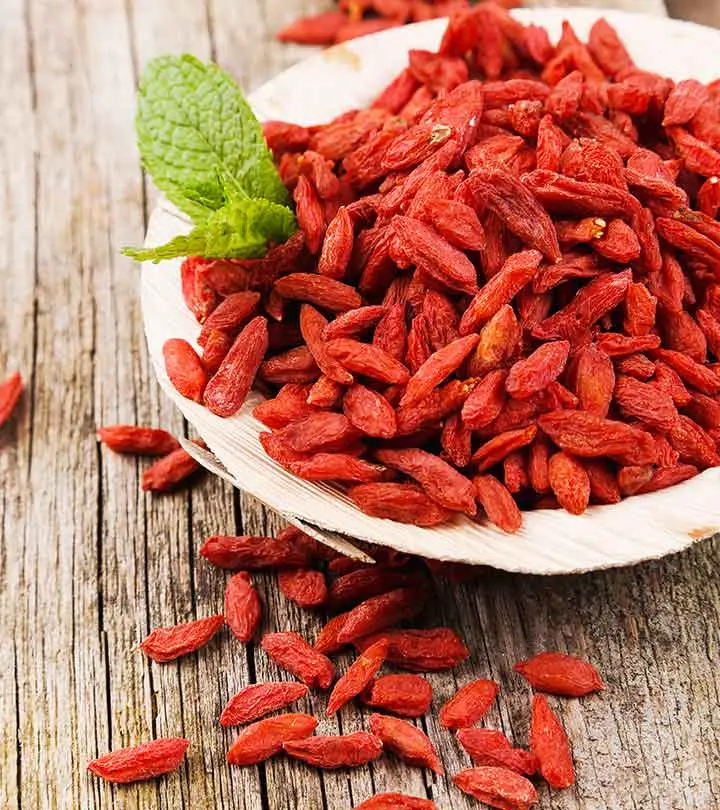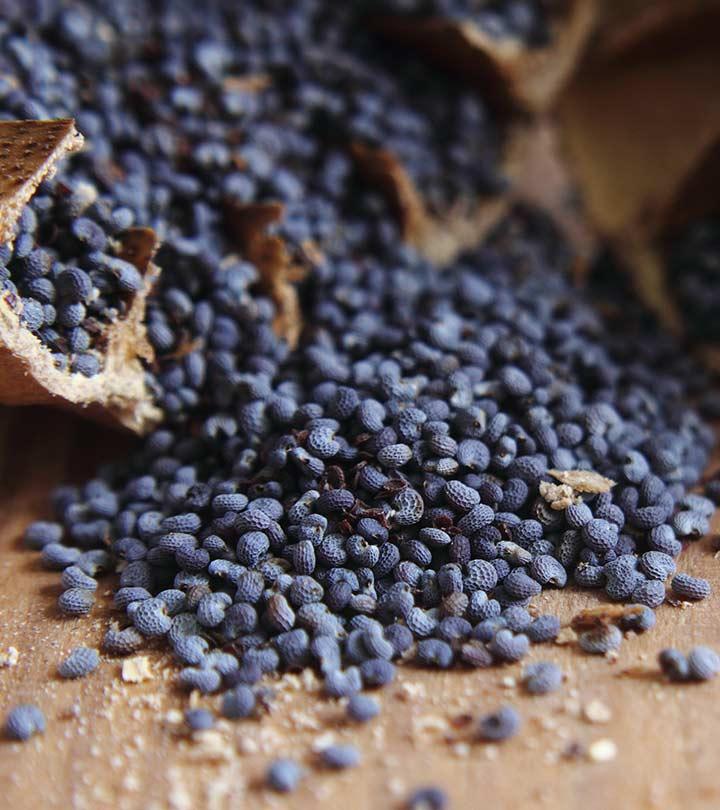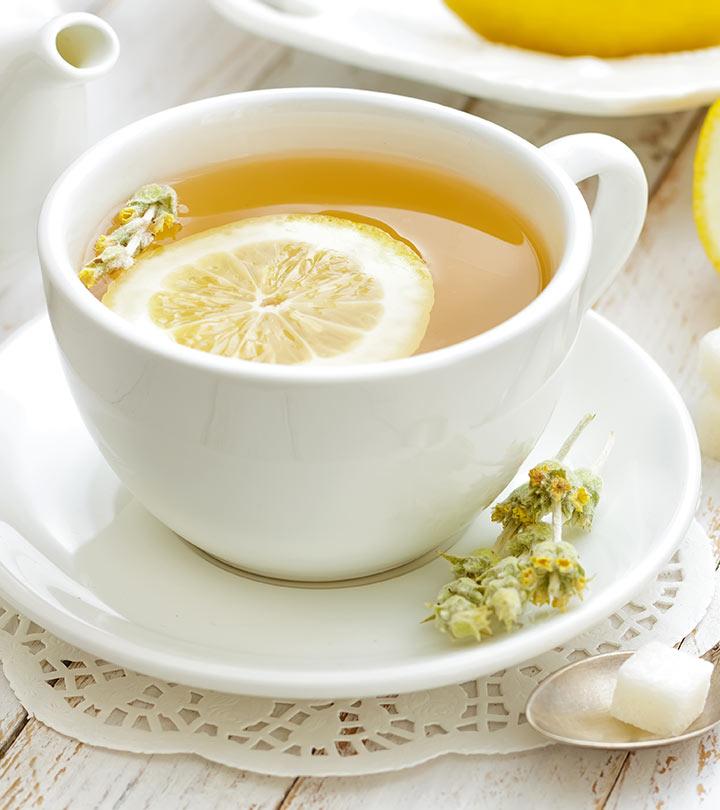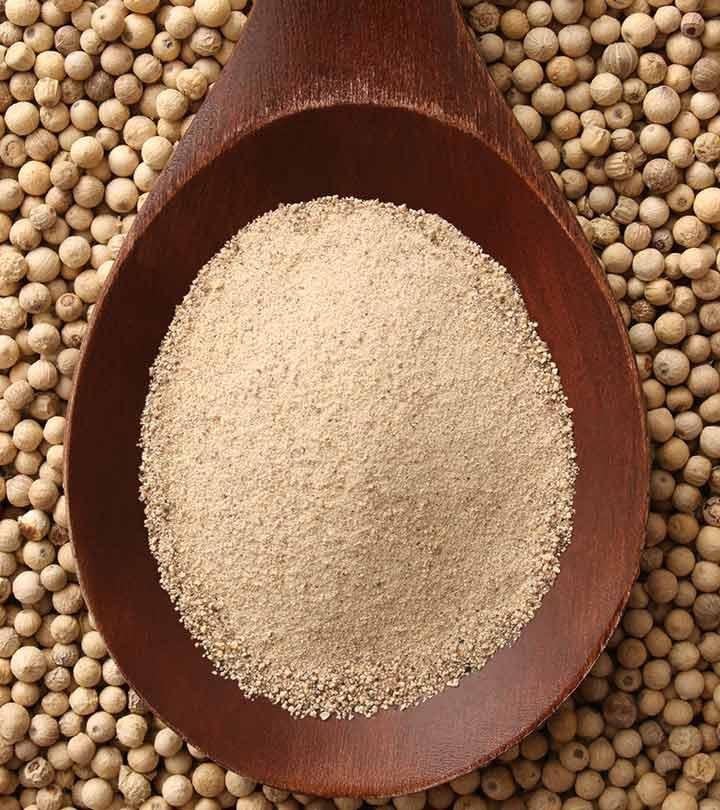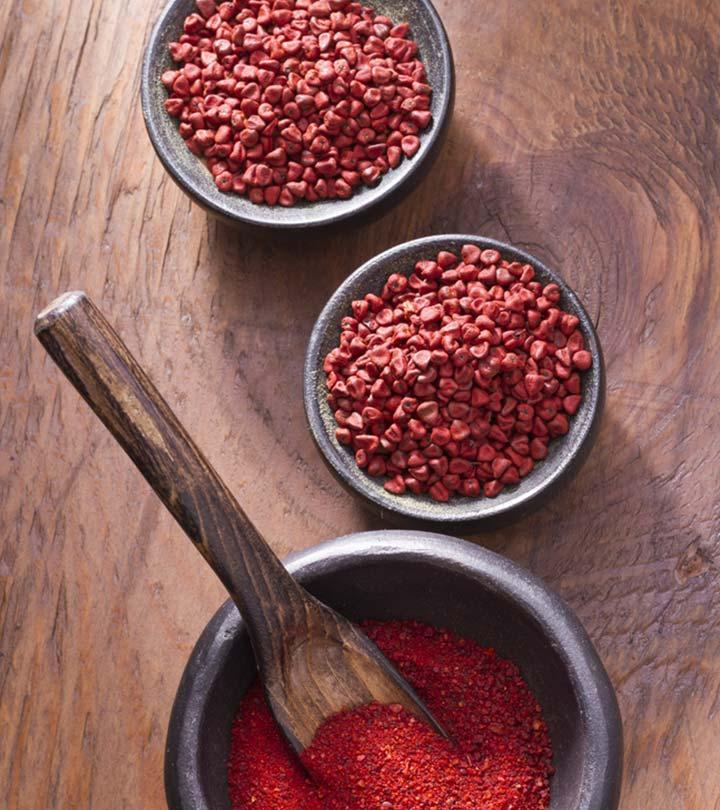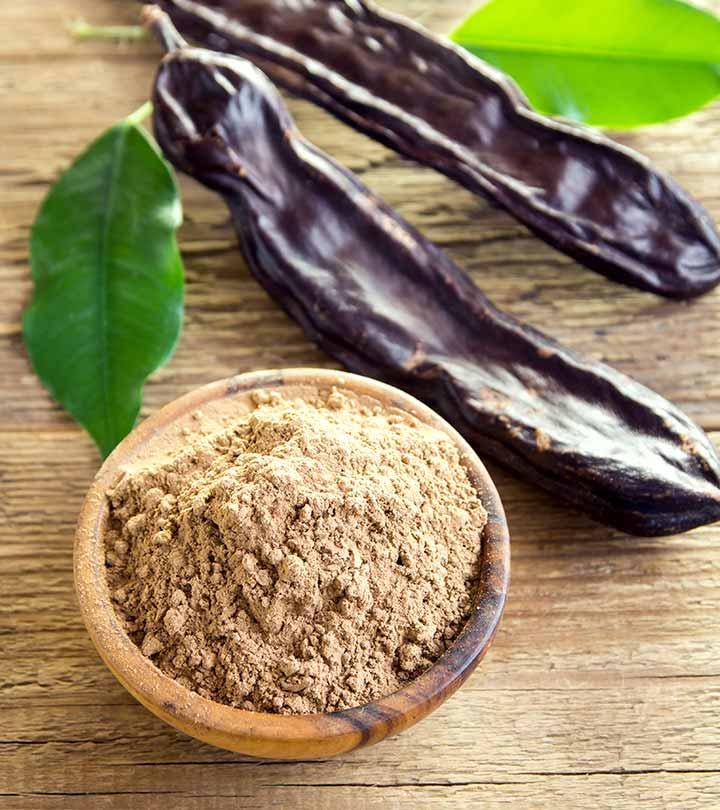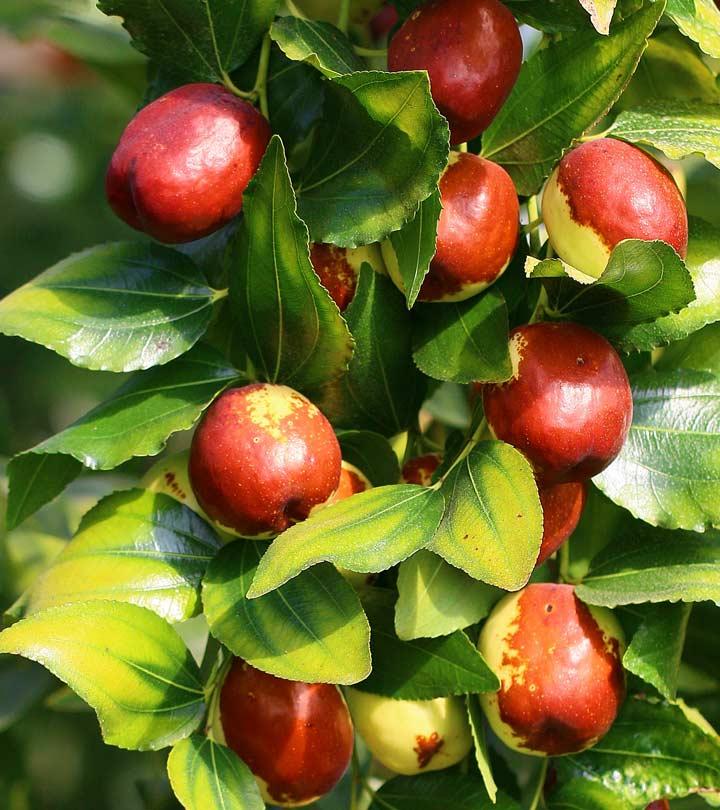Benefits of Juniper Berries
Weigh the pros and cons of these healthy berries before you make them a part of your diet.
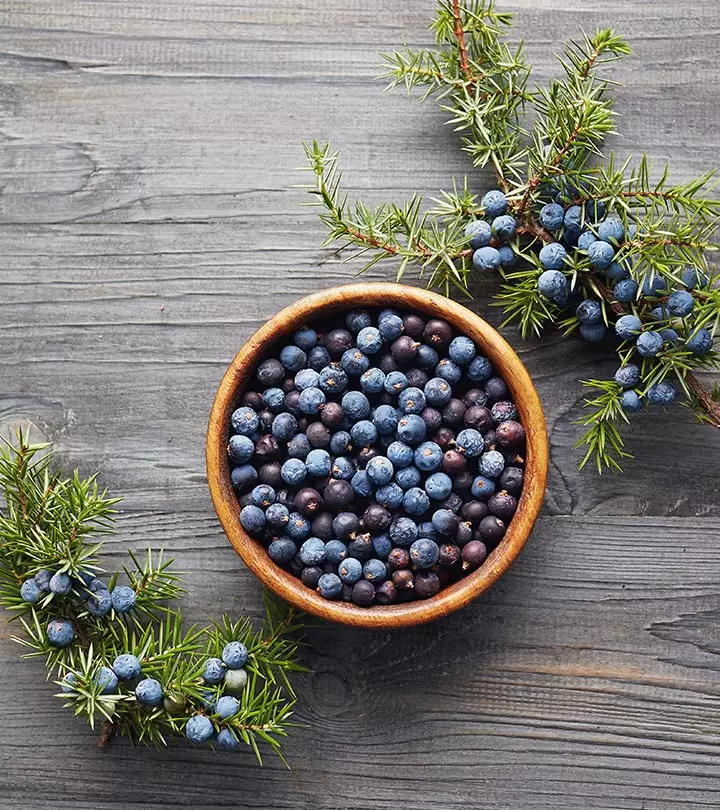
Image: Shutterstock
The benefits of juniper berries are numerous and can be attributed to their nutrient-dense nature. Juniperus communis is an evergreen shrub and bears these tasty berries. They have an earthy, woody aroma, tart flavor and are used for culinary purposes. Juniper berries grow in Asia, North America, and Europe. Let us closely look at the numerous benefits they offer, nutrition facts, and possible side effects of juniper berries. Scroll down.
 Know Your Ingredient: Juniper Berry
Know Your Ingredient: Juniper BerryWhat Is It?
A berry-like, fleshy seed cone with a tart flavor.
What Are Its Benefits?
Improves collagen production, reduces inflammation, treats stomach issues and infections, and may help control diabetes.
Who Can Use It?
All except those who are pregnant or have diabetes or gastrointestinal and kidney-related issues.
How Often?
Regularly, but in moderation.
Caution
Avoid it during pregnancy or if you have kidney-related problems. Seek medical attention in case of an allergic reaction.
In This Article
What Is Juniper Berry?
The juniper tree is dioecious, which means that the male flowers and female flowers grow on separate plants. The male juniper plant produces cones that are smaller in size when compared to cones produced by the female juniper plant. These cones from the male plant are inedible as they are little sacks of pollen. On the other hand, the female cones are relatively larger in size and ripen into what you know as juniper berries. These cones, initially green, take about 18 months to ripen and turn into round and oval-shaped juniper berries that are dark blue in color and have a white-ish waxy coating on their skin.
While most varieties of juniper berries are edible, juniperus oxycedrus and juniperus sabina are not safe to be consumed.
A blogger, in the search for new food experiences, tried juniper berries for the first time and shared their experience in a blog post. They write, “Juniper berries aren’t really berries, after all, but mini, fleshy cones (like pine cones, as junipers are related). And they definitely have a complex, layered flavor. It is great at first, somewhat citrus-y, and I also immediately thought they tasted ‘purple.’ Now, there’s a bitter, pine bark aftertaste to them. But I could really see them flavoring sauces. Hmmm. By the way, not all juniper berries are edible, apparently; it depends on the species – so, unless you are in the know, I would only buy them from a store (i).”
 Quick Tip
Quick TipJuniper berry benefits your health in many ways, all thanks to its good phytochemical profile. Let us look at some of the nutritional facts of juniper berries and how to go about using them.
Nutritional Facts Of Juniper Berries Per 100g
A 100 mL of juniper berry soda contains (1):
| Name | Value | Unit |
|---|---|---|
| Energy | 15 | kcal |
| Protein | 0 | g |
| Total Fat | 0 | g |
| Carbohydrates | 4.23 | g |
| Total Sugar | 4.23 | g |
| Sodium | 0 | g |
Juniper berries have been used in medicinal applications from ancient times due to their anti-inflammatory, anti-diarrhoeal, and antiseptic properties. They are also highly concentrated with vitamins such as vitamin C, antioxidants such as flavonoidsi A diverse group of bioactive compounds found in many fruits and vegetables with anti-inflammatory and disease-fighting properties. , and compounds such as monoterpenes (2).
Monoterpenes are compounds that are found in the essential oils of many plants, vegetables, and fruits. This compound is known to treat and prevent carcinogenic activities at different stages of cancer. Studies suggest that monoterpenes may help in the prevention and treatment of cancer (3).
The high levels of antioxidants that are present in the juniper berry also make it useful in improving the quality and preserving meats. They improve the quality of meat by giving it a sharp and distinct flavor. (4).
Let us now look at some of the health benefits of juniper berries.
5 Potential Health Benefits of Juniper Berries
Juniper berries have been used in traditional medicine for their astringenti A substance or chemical agent that helps shrink tissues and dry up skin secretions to tighten pores. and antiseptic properties. Here are a few more potential and emerging health benefits of juniper berries.
1. Highly Rich In Nutrients And Powerful Compounds
Juniper berries are a rich source of vitamin C which is essential for your immune system and improvement of collagen production in the body. Vitamin C also helps in protecting your skin from UV-induced photodamage. It is a good antioxidant that helps in keeping your cells protected from free radicals (5).
These berries are also rich in flavonoids that offer a wide range of health benefits. By incorporating a diet that is rich in flavonoids you may be able to protect yourself from chronic heart diseases. A study was conducted to ascertain the effects of flavonoids on reducing diabetes, cancer, cardiovascular, and brain diseases. It was found that when consumed in its natural form or synthesized from, flavonoids helped reduce some of the symptoms of these diseases. The study also pointed out that further research was required to begin clinically testing the effectiveness of flavonoids in treating these diseases (6).
2. Anti-inflammatory Properties
Juniper berries contain essential oils and antioxidants that give them anti-inflammatory properties. These essential oils have been used for medicinal and flavoring purposes as well. They help in the prevention of oxidation of cells that cause rapid cell damage and also protect the cells from free radicals that cause tissue damage (7).
Juniper berry oil has been used as an ingredient in skincare products and cosmetics due to its anti-inflammatory values. Studies show that juniper berry oil has a therapeutic effect on chronic inflammation and fibrosis (8).
3. Potentially Anti-diabetic
Juniper berries are known to have been used in traditional medicine to treat diabetes. A study was conducted on rats to ascertain the anti-diabetic effect of juniper berry extracts. During the study, rats with diabetes were fed extracts of juniper berry for 21 days and it was found that there was a considerable reduction in their blood glucose levels. The study helped in affirming the anti-diabetic properties present in juniper berry extracts and that it can potentially be used to treat type 2 diabetes (9). However, further trials are required to confirm if they have the same effects on the human body.
4. May Protect Your Heart Health
Juniper berries may improve your heart health by improving your HDL levels and reducing your LDL levels. HDL stands for high-density lipoprotein, which is also called good cholesterol. HDL absorbs excess cholesterol and moves it to your liver. Your liver processes it and flushes it out of your body. It is good to have higher levels of HDL cholesterol as it reduces your risk of heart diseases and stroke. LDL stands for low-density lipoprotein, also known as bad cholesterol. High levels of LDL cholesterol are bad for you as they put you at a greater risk of getting a heart attack or a stroke (10).
In a study conducted on rats induced with diabetes, it was found that oral administration of Chinese juniper berry extracts led to a decrease in triglyceride and cholesterol by 37% and 57% respectively (11). However further research is required to ascertain if consuming juniper berries will have the same effect on the cholesterol and triglyceride levels of human beings.
5. Antibacterial, Antifungal, And Good For Your Gut
The essential oils of juniper berries are also known for having these properties due to the presence of a compound called terpenes. Terpenes also make the essential oils of the juniper berry an effective diuretic. This helps in improving your kidney function and intestinal function (12).
While the potential health benefits of juniper berries sound very alluring, it must be noted that sufficient tests are not available to prove the efficacy of these benefits on human subjects. Hence these are only the potential and emerging benefits of juniper berries.
Juniper berries have a lot of potential benefits, but are they completely safe? Let us take a look at the potential and plausible side effects of juniper berries.
Side Effects Of Eating Juniper Berries
As there is a lack of sufficient research and clinical trials regarding the use of juniper berries, you ought to consume them with caution as there may be potential side effects. Here are a few possible side effects of juniper berries.
- Could Cause Kidney Problems
For most adults, consuming juniper berries orally is relatively safe. However, when consumed in large quantities and over a long period of time, they may be unsafe and cause kidney problems. They may also cause irritation of the gut leading to gastrointestinal issues (4).
- May Be Harmful To People Suffering From Diabetes
Previously in this article, you have read that juniper berries may potentially be anti-diabetic and could be used in the treatment of type 2 diabetes. However, another study found that consuming juniper berry extracts in large quantities and for a long period of time can lead to a severe lowering of blood pressure in people suffering from diabetes (4).
- May Be Dangerous During Pregnancy
A study was conducted to ascertain if the compounds present in juniper berries would cause complications during pregnancy in cows. It was found that juniper berries contain a compound called isocupressic acid which was identified as an abortifacienti A substance or chemical concoction prepared from plant oils or infusions that is used to terminate a pregnancy. . The study concluded that this compound present in juniper berries is unsafe during pregnancy and may cause miscarriage (13). Further research is required to prove if the same effects are applicable in the case of human pregnancies.
- May Cause Skin Allergies
The essential oils from juniper berries when used in concentrated form on the skin can cause irritation, rashes, and even blisters. In some adverse cases, it can also cause dermatitisi A long-term inflammatory skin condition that causes reactions like itchy, red, swollen, and bumpy skin. and nasal blisters (4).
- May Cause Nausea And Diarrhea
Consuming large amounts of juniper berries may cause nausea and diarrhea. This is due to the high levels of tannins present in juniper berries. Tannins may cause your body to react strongly as they bind to protein molecules in your digestion process. This causes them to clump together and form a mass in your stomach and make you feel nauseous, and causes diarrhea.
Knowing the pros and cons before trying anything is essential as it helps you make informed decisions. Especially in the case of juniper berries, where very little is known about their benefits, side effects, and uses, it becomes that much more important that you know its perks and pitfalls. Since you are now in the know-how, let us look at how you can use juniper berries in their various forms.
How to Use Juniper Berries?
Apart from their medicinal uses, juniper berries are also used in cooking and in a few alcoholic beverages. They have a very strong aroma and flavor that can complement your marinades and meat dishes. For a strong flavor and taste, you can slice the berries in half and add them to your sauce. If you like a mild flavor you can toast the berries, crush them to a coarse powder and then add them to your sauce or marinade. Juniper is an excellent addition when cooking mutton (lamb), wild boar, pork, and venison. The oil extracted from dried juniper berries has been used in the cosmetics industry for its therapeutic benefits (4).
 Fun Fact
Fun FactLet us now look at some of the things you need to keep in mind before consuming juniper berries.
Safety Precautions To Be Considered Before Taking Juniper Berries
Juniper berries when orally consumed in small quantities are safe, but you still have to be precautious about consuming them.
- Pregnant women should avoid consuming juniper berries or juniper berry extracts as they may harm the unborn child by forcing the uterus to contract. It should also be avoided by those who have kidney issues as it may damage the kidneys. (14).
- Avoid using juniper berry extracts in concentrated forms on your skin as it may cause rashes or in severe cases, blisters dermatitis (4).
Consuming excess amounts of juniper berries may cause severe side effects. Hence, check out the next section to learn about the correct dosage.
Juniper Berry Dosage
Anecdotal evidence suggests that 2-10 g per day of whole or crushed juniper berries can be consumed, while one can consume 1-6 grams per day of juniper berry supplements. However, research regarding the exact dosage to reap the medicinal benefits of these berries is lacking. Also, the appropriate dosage depends on the individual’s age, health condition, and the form in which they consume the juniper berry (fresh, dried, extract, or supplement). Hence, consult a healthcare professional before starting any new supplement, as individual responses may vary.
Infographic: Top 5 Benefits Of Juniper Berries
Juniper berries are a common ingredient in ancient medicines. They have beneficial properties that make them a wonderful home remedy for several ailments. The infographic below elaborates the many health benefits of these berries and how you can use them to manage certain health issues. Check it out!

Illustration: StyleCraze Design Team
Juniper berries are delicious conifer cone seeds. These berries are frequently found in traditional and natural remedies to treat many health complications. The benefits of juniper berries are attributed to their potent antioxidants, vitamins, and minerals. They act as herbal medicine that has natural antibacterial and antifungal properties that can help promote heart and gut health. Juniper berries are rich in antioxidants that may help reduce the harmful free radicals in your body. They may also aid in blood sugar management. While regular intake can give you great benefits, excess consumption can cause problems. If you experience any adverse effects, limit their use and seek medical advice.
Frequently Asked Questions
Do juniper berries make you tired?
No. Anecdotal studies suggest that juniper berries offer wellness and restful sleep. They have a positive impact on the brain and offer rest. However, limited research is available in this regard.
Are juniper berries toxic?
No. Not all juniper berries are toxic. The juniper berries produced from Juniperus sabina and Juniperus oxycedrus are considered toxic.
Can you drink juniper berry tea?
Yes. You can drink juniper berry tea. It is not only a refreshing hot beverage, but it also offers many health benefits.
Is juniper a hallucinogeni A group of drugs that can cause unpredictable reactions and alter one's mood, perception, thoughts, and feelings. ?
According to one study, only one species of Juniperus recurvawas has been found to be psychoactive (a substance that affects how the brain works) (15). It may cause changes in mood, behavior, and perception.
Are juniper berries good for cellulite?
Anecdotal evidence suggests that juniper berry oil is effective for treating cellulite. However, limited research is available in this regard.
Can you eat dried juniper berries?
Yes. You can eat dried juniper berries. They are available in either whole or crushed form.
Is juniper good for anxiety?
Juniper berry oil extracted from ripe dried berries has been found to help with anxiety (16).
Key Takeaways
- Juniper berries have anti-inflammatory properties, making them an essential ingredient in skincare products and cosmetics.
- However, they can cause kidney problems and may cause skin allergies.
- They may also lead to uterus contraction, making it risky for pregnant women.

Image: Stable Diffusion/StyleCraze Design Team
Learn about juniper berries’ amazing health benefits! Discover how they can improve digestion, reduce inflammation, and boost immunity. Go, check out the video for the same.
Personal Experience: Source
StyleCraze's articles are interwoven with authentic personal narratives that provide depth and resonance to our content. Below are the sources of the personal accounts referenced in this article.
i. Juniper and Elder Berrieshttps://adventuresacross2014.wordpress.com/2014/12/14/juniper-and-elder-berries/
References
Articles on StyleCraze are backed by verified information from peer-reviewed and academic research papers, reputed organizations, research institutions, and medical associations to ensure accuracy and relevance. Read our editorial policy to learn more.
- A Phytopharmacological Review On A Medicinal Plant: Juniperus Communis
https://www.ncbi.nlm.nih.gov/labs/pmc/articles/PMC4897106/ - Juniper Berries
https://fdc.nal.usda.gov/fdc-app.html#/food-details/1587481/nutrients - Cancer Chemoprevention And Therapy By Monoterpenes.
https://www.ncbi.nlm.nih.gov/labs/pmc/articles/PMC1470060/ - Potential of Juniperus Communis L as a nutraceutical in Human and Veterinary Medicine
https://www.ncbi.nlm.nih.gov/labs/pmc/articles/PMC6726717/ - The Roles of Vitamin C in Skin Health
https://www.ncbi.nlm.nih.gov/labs/pmc/articles/PMC5579659/ - The Antioxidant Activity of Coumarins and Flavonoids
https://pubmed.ncbi.nlm.nih.gov/22876957/ - Chemical Composition and Antioxidant Properties of Juniper Berry (Juniperus communis L.) Essential Oil. Action of the Essential Oil on The Antioxidant Protection of Saccharomyces Cerevisiae Model Organis.
https://www.ncbi.nlm.nih.gov/labs/pmc/articles/PMC4665443/ - Anti-Inflammatory Activity of Juniper (Juniperus communis) Berry Essential Oil in Human Dermal Fibroblasts
https://www.tandfonline.com/doi/full/10.1080/2331205X.2017.1306200 - Evaluation of Anti-Diabetic and Anti-Hyperlipidemic Potential of Methanolic Extract of Juniperus Communis (L.) In Streptozotocin- Nicotinamide Induced Diabetic Rats.
https://www.semanticscholar.org/paper/EVALUATION-OF-ANTI-DIABETIC-AND-ANTI-HYPERLIPIDEMIC-Banerjee-Singh/591b8382f9fe1889761c611443365ab3099a5c9f - LDL and HDL Cholesterol: “Bad” and “Good” Cholesterol
https://www.cdc.gov/cholesterol/ldl_hdl.htm - Comparison Between Ethanolic and Aqueous Extracts From Chinese Juniper Berries For Hypoglycaemic and Hypolipidemic Effects in Alloxan-Induced Diabetic Rats
https://www.sciencedirect.com/science/article/abs/pii/S0378874107004898?via%3Dihub - Antimicrobial Activity of Juniper Berry Essential Oil (Juniperus Communis L. Cupressaceae)
https://pubmed.ncbi.nlm.nih.gov/16375831/ - Abortifacient Effects of Lodgepole Pine (Pinus Contorta) and Common Juniper (Juniperus Communis) on Cattle
https://pubmed.ncbi.nlm.nih.gov/9778758/ - Abhal (Juniperus communis L.) Beneficial Drug for Urogenital System – A Review
https://www.researchgate.net/publication/346607556_Abhal_Juniperus_communis_L_Beneficial_Drug_for_Urogenital_System_-_A_Review - The ethnobotany of psychoactive plant use: A phylogenetic perspective
https://www.researchgate.net/publication/308962301_The_ethnobotany_of_psychoactive_plant_use_A_phylogenetic_perspective - Potential of Juniperus communis L as a nutraceutical in human and veterinary medicine
https://www.ncbi.nlm.nih.gov/pmc/articles/PMC6726717/
Read full bio of Reda Elmardi
Read full bio of Ravi Teja Tadimalla
Read full bio of Payal Karnik










